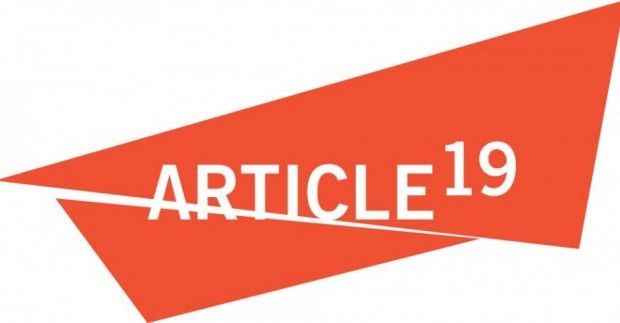Regulating “Hate Speech” in the Media
Imagining Better Ways to Promote Equality and Freedom of Expression
London, 5-6 October 2017
 What is the role of media regulators and press councils in promoting the rights to freedom of expression and equality in the media?
What is the role of media regulators and press councils in promoting the rights to freedom of expression and equality in the media?- What types of “hate speech” may be prohibited under international law?
- What examples are there of good practice by media regulatory and self-regulatory bodies across Europe in responding to “hate speech”?
- What creative and innovative approaches could reinforce freedom of expression and equality in the media, including the social media presence of media actors?
ARTICLE 19 is hosting a two-day workshop on international legal standards on regulating hate speech in the media for representatives of audio-visual media regulatory bodies and press councils from across the European Union. The workshop will provide a space for sharing experience and best practices and will include a mixture of theoretical and practical sessions. The workshop will also seek to elaborate new, creative and innovative approaches towards promoting equality and freedom of expression in the media, including the social media presence of media actors.
As ethical standards are an important dimension of the debate the EJN has been invited to participate in the last session of the workshop where participants will work in small groups to elaborate on innovative and creative approaches to promoting equality and freedom of expression in the media. This session would take the form a small competition with Aidan White, the EJN’s Director, as one of the jury members.
Article 19
ARTICLE 19 is an international non-governmental organisation, working globally to promote freedom of expression and access to information. The theoretical session of the workshop will draw on ARTICLE 19’s body of work on media regulation, self-regulation and responding to hate speech, including the 2015 Toolkit on Hate Speech, a detailed exploration of the international legal framework and the complexities of its application. Endorsed by high-level UN officials and civil society and academic experts, ARTICLE 19’s policy documents aim to promote greater global consensus about how to effectively counter “hate speech”, while protecting the rights to freedom of expression and equality.
Media Against Hate
The workshop is part of #MediaAgainstHate, a Europe-wide campaign led by the European Federation of Journalists and a coalition of civil society organisations. The campaign involves journalists, civil society, lawyers and regulatory bodies, in order to counter hate speech and discrimination in the media, both on and offline.
The project is financially supported by the Rights, Equality and Citizenship (REC) Programme of the European Union.